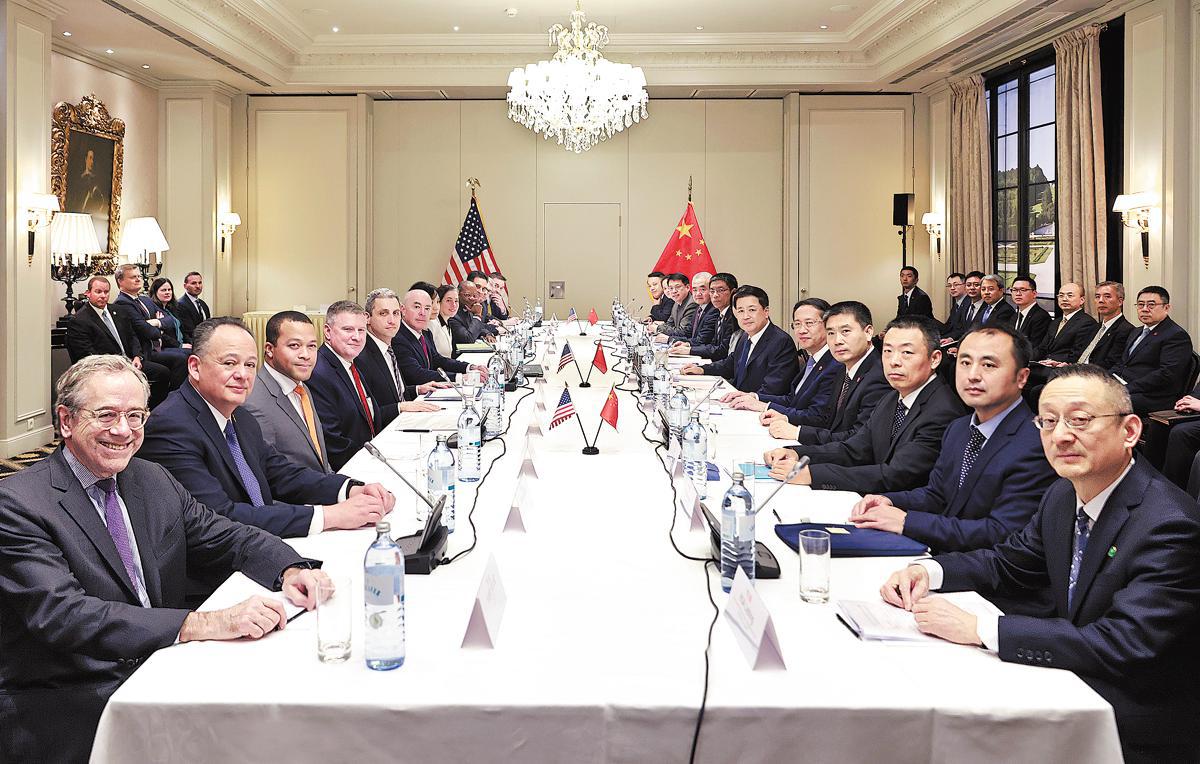US told to stop harassing students
By YANG ZEKUN | chinadaily.com.cn | Updated: 2024-02-19 23:54

State Councilor and Minister of Public Security Wang Xiaohong urged the United States to stop harassing and interrogating Chinese students for no reason, during a meeting with US Homeland Security Secretary Alejandro Mayorkas in Vienna, Austria, on Sunday.
Wang asked the US to ensure that Chinese citizens enjoy fair treatment and full dignity upon entering the country.
The US should take effective measures to ensure the safety of Chinese diplomatic and consular missions and personnel, and lift visa restrictions against Chinese institutions and individuals, he said.
In January, there were reports of multiple Chinese students with valid documents facing unwarranted interrogation, harassment and visa cancellations, leading to deportations by US border enforcement officers upon their arrival at Washington Dulles International Airport.
During their time at the airport, the students were subjected to prolonged questioning, inspection of their electronic devices and, in some cases, detention for over 10 hours with restricted communication with the outside world.
US law enforcement officers repeatedly questioned the individuals about their political background and research activities, demanding access to information about the Chinese government as a condition for entry. After the individuals refused, the officers revoked their visas, barred them from entering the country and deported them.
These acts occurred despite US officials recently stating their support for cultural exchanges with China and welcoming Chinese students.
During a meeting in San Francisco in November, President Xi Jinping and US President Joe Biden agreed to enhance dialogue and cooperation in various fields. While addressing a welcome dinner jointly hosted by friendly organizations in San Francisco, President Xi said that China is ready to invite 50,000 young Americans to China on exchange and study programs over the next five years.
On Jan 29, the Chinese embassy in the US issued a reminder to prospective Chinese students intending to enter the US through Washington Dulles International Airport to exercise caution. They were advised to ensure they have a thorough understanding of US entry policies and regulations, make preparations in advance and bring all required entry documents.
In the event of interrogation by US border enforcement officers, prospective Chinese students were advised to remain calm and cooperate rationally. If treated unfairly, they were instructed to record information about the officers involved, carefully review any documents they were asked to sign, request copies and preserve necessary evidence.
Chen Wenxin, executive director of the China Institutes of Contemporary International Relations' Institute of American Studies, said that student exchanges are an integral part of cultural exchanges between China and the US. Cultural exchanges between the two countries have evolved with changes in the overall bilateral relationship.
Chen said that China has made significant efforts in promoting cultural exchanges with the US and proposed during the San Francisco meeting to expand people-to-people exchanges, especially among the younger generation.
"We have shown great goodwill, but the malicious interrogation and harassment of Chinese students by the US side creates obstacles to our cultural exchanges," he said.
Chen noted that Wang's recent request was very pertinent and stems from protests against the continuous hindrances and wrong practices by the US, which are detrimental to normal exchanges between the two sides.
If the US is sincere about advancing cultural exchanges and implementing the consensus of the San Francisco summit, it must make changes in this regard, Chen said.
At the Vienna meeting, Wang requested that the US rectify its categorization of China as a "major drug source country".
In September, Biden submitted to Congress a presidential determination memorandum on major drug transit or major illicit drug-producing countries, identifying China and more than 20 other countries as so-called major sources for drugs.
Wang expressed hope that both sides would uphold the principles of mutual respect, peaceful coexistence and win-win cooperation, respect each other's core interests and major concerns, and remove obstacles to bilateral drug control, law enforcement cooperation and cultural exchanges.
Both sides agreed to implement the consensus reached by the two heads of state at the San Francisco summit, maintain dialogue and cooperation in drug control and law enforcement on the basis of mutual respect, manage their differences, strive to achieve mutually beneficial cooperation, attach importance to each other's concerns and address issues properly.
























